The Importance of Digital Customer Service in Today’s World

Digital customer service uses online tools and platforms to assist customers, offering faster communication and improved efficiency. It has become essential in today's world, with 67% of customers preferring self-service options and 81% of businesses identifying customer experience as a competitive edge. By 2025, advancements in technology and customer expectations will drive demand for seamless, personalized support. Solutions like Sobot's digital customer service solution streamline operations through automation and real-time feedback, transforming customer service into a vital business strategy.
What Is Digital Customer Service?
Definition and Key Features
Digital customer service refers to the use of online tools and platforms to assist customers in resolving their queries, accessing information, and enhancing their overall experience. Unlike traditional methods, which rely heavily on face-to-face or phone interactions, digital customer service leverages technology to provide faster, more efficient support.
Key features of digital customer service include:
- Convenience: You can access support anytime, anywhere.
- Accessibility: Channels like live chat and social media offer tailored assistance.
- Availability: Tools such as chatbots ensure 24/7 support.
- Self-Service Options: Resources like FAQs empower you to solve issues independently.
- Personalization: Advanced analytics allow businesses to customize interactions based on your preferences.
For example, Sobot’s digital customer service solution integrates AI-powered chatbots that operate round-the-clock, providing multilingual support and real-time assistance. These features not only enhance your experience but also help businesses reduce costs and improve efficiency.
How Digital Customer Service Differs from Traditional Methods
Digital customer service stands apart from traditional methods in several ways. Traditional customer service often involves direct human interaction, such as phone calls or in-person visits. While these methods can feel personal, they are limited by operating hours and scalability.
In contrast, digital customer service solutions offer:
- Scalability: Digital platforms can handle high volumes of inquiries simultaneously.
- Automation: AI tools like chatbots resolve repetitive queries, freeing up human agents for complex issues.
- Data Insights: Digital interactions generate valuable data that businesses can use to improve services.
- Cost Efficiency: Automation reduces the need for large customer service teams.

For instance, companies like Azul Airlines have achieved an 84% reduction in customer service queue times by implementing conversational AI. Similarly, Vodafone Germany uses AI voice assistants to handle 40% of customer calls, leading to faster resolutions and higher satisfaction rates.
Common Digital Channels for Customer Support
Digital customer service relies on a variety of channels to meet your needs. These include:
- Email: A reliable option for detailed inquiries.
- Live Chat: Offers real-time assistance for immediate concerns.
- Messaging Apps: Platforms like WhatsApp provide convenient, on-the-go support.
- Social Media: Enables quick responses and public engagement.
- Community Forums: Allows you to find solutions through peer discussions.
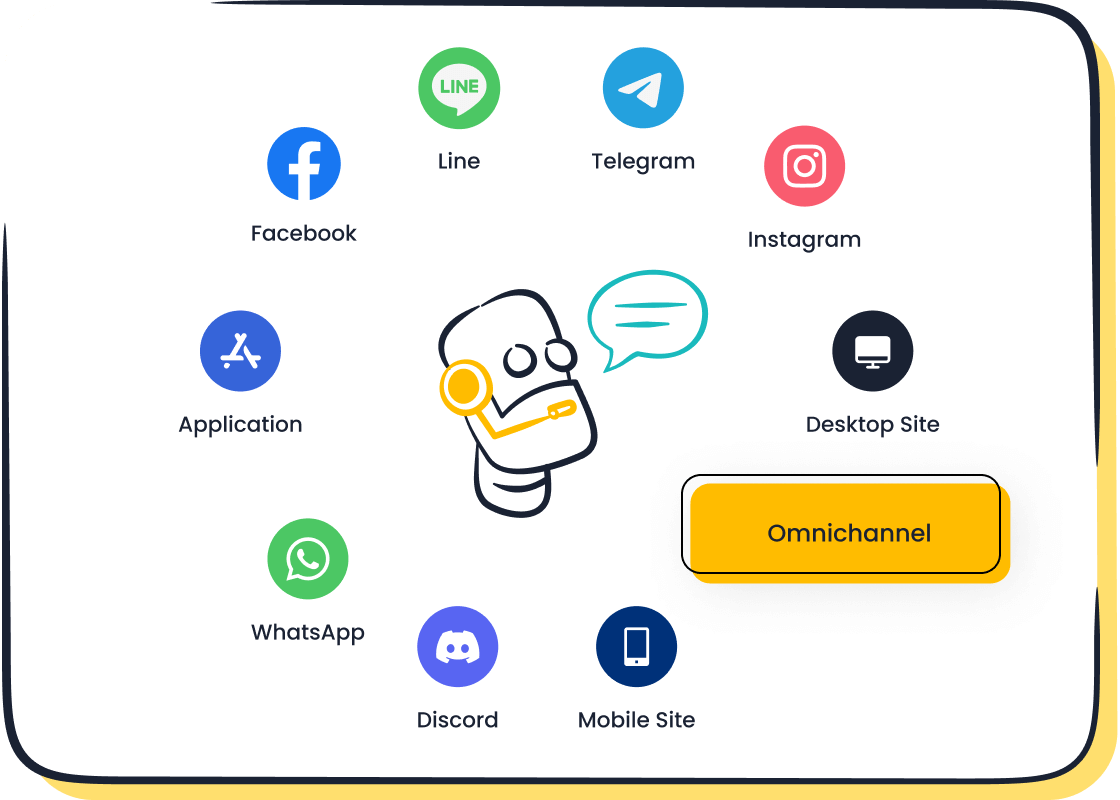
Sobot’s digital customer service solution supports all these channels, ensuring seamless communication. For example, its AI chatbot integrates with WhatsApp and other messaging apps, providing consistent support across platforms. This omnichannel approach ensures you receive help wherever you are, enhancing your overall experience.
Why Digital Customer Service Is Crucial in 2025
Meeting the Demand for Seamless Experiences
In 2025, customers expect seamless digital experiences that prioritize convenience and efficiency. Businesses that fail to meet these expectations risk losing their competitive edge. Studies show that 89% of companies with superior customer experience management report revenue growth, compared to only 38% of those with below-average experiences. This highlights the direct link between exceptional digital customer service and business success.
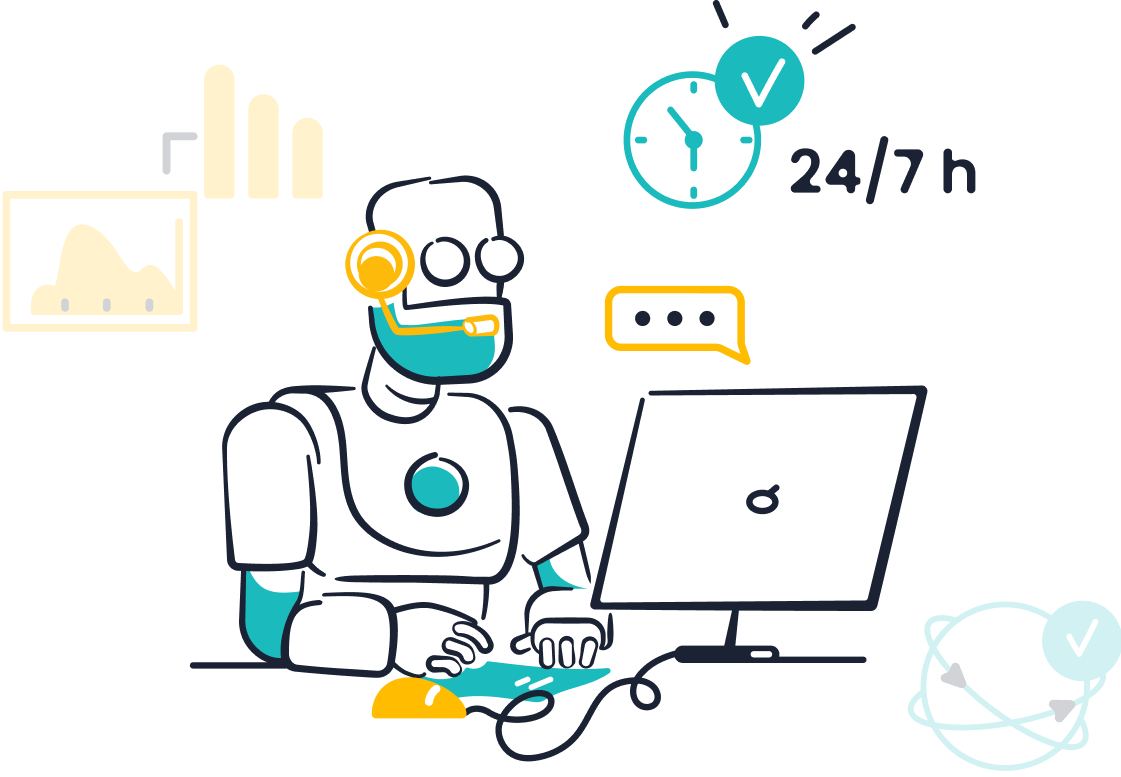
More than half of consumers now expect a response to their inquiries within one hour. This demand for speed and accessibility has made tools like AI-powered chatbots indispensable. For example, Sobot’s AI chatbot operates 24/7, providing instant, multilingual support across multiple channels like WhatsApp and SMS. By automating repetitive tasks, it ensures faster resolutions and frees up human agents for more meaningful interactions.
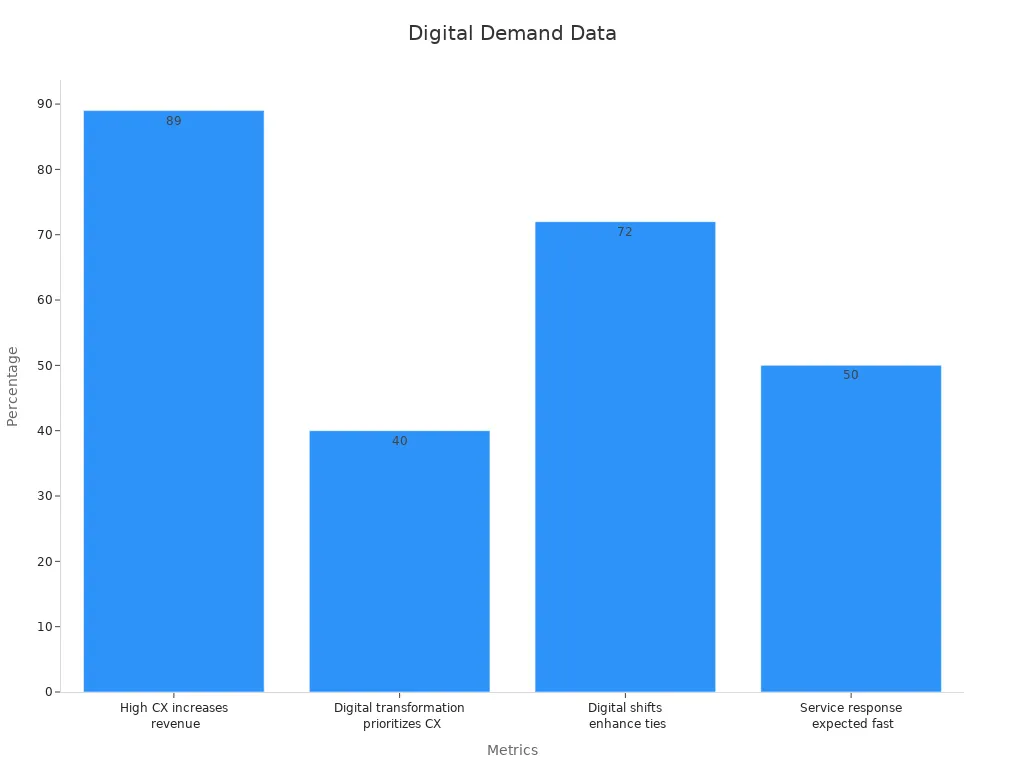
As digital transformation accelerates, 40% of businesses now prioritize customer experience in their strategies. This shift reflects the growing importance of creating frictionless customer interactions that build trust and loyalty.
The Role of Personalization in Customer Satisfaction
Personalization has become a cornerstone of modern customer service trends. Customers no longer want generic responses; they expect tailored solutions that address their unique needs. Research reveals that 71% of customers expect personalized experiences, and 76% feel frustrated when they don’t receive them. Furthermore, 80% of consumers are more likely to make a purchase when brands offer personalized experiences.
Sobot’s AI solutions excel in delivering personalized customer service. By leveraging advanced analytics and customer data, Sobot enables businesses to customize interactions in real time. For instance, its AI copilots assist agents by generating context-aware responses, ensuring every interaction feels personal and relevant. This approach not only enhances customer satisfaction but also strengthens loyalty, as 62% of consumers say they lose trust in brands that fail to personalize their services.
| Statistic | Source |
|---|---|
| 62% of business leaders say that their personalization efforts have led to improved customer retention. | Twilio/Segment |
| 71% of customers expect personalized experiences, with 76% expressing frustration when they don’t receive them. | McKinsey |
| 80% of consumers are more likely to make a purchase when brands offer personalized experiences. | Epsilon |
By integrating AI-driven personalization into your digital customer service strategy, you can create meaningful interactions that foster long-term customer relationships.
Enhancing Business Efficiency and Competitiveness
Digital customer service not only improves customer satisfaction but also enhances business efficiency. Automation tools like AI chatbots reduce the workload on human agents by handling repetitive queries. This allows your team to focus on complex issues, improving overall productivity. For example, Sobot’s AI chatbot boosts agent efficiency by 70% while cutting operational costs by up to 50%.
A telecom company recently revamped its service delivery model using AI and achieved remarkable results. By automating key processes, the company reduced churn rates and regained its competitive edge. Similarly, 73% of consumers now consider customer experience a critical factor in their purchasing decisions, making it essential for businesses to invest in advanced digital tools.
“43% of consumers are willing to pay more for greater convenience, while 42% value friendly, welcoming customer service.”
Sobot’s omnichannel solutions further enhance efficiency by unifying customer interactions across platforms. This seamless integration ensures that your team has access to comprehensive customer data, enabling faster resolutions and better service quality. By adopting these tools, you can stay ahead of customer service trends and maintain a competitive advantage in 2025.
Benefits of Digital Customer Service for Businesses and Customers
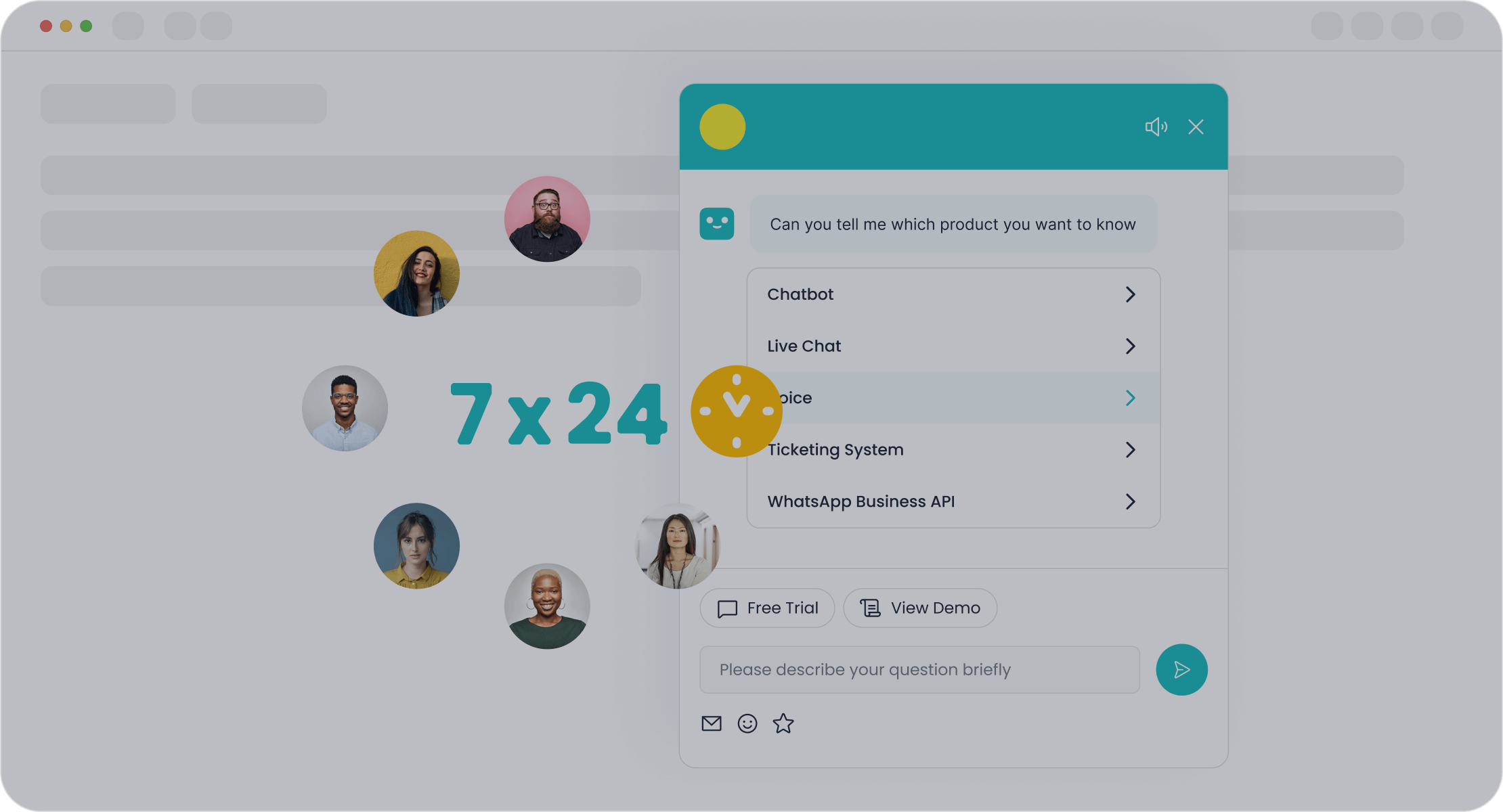
Convenience and Accessibility for Customers
Digital customer service offers unmatched convenience and accessibility, making it easier for you to get the help you need. With 24/7 availability, you no longer have to wait for business hours to resolve your issues. Automated tools like chatbots provide instant responses, ensuring your concerns are addressed promptly. For example, apps like Talkspace connect you directly to therapists, while Capsule’s mail-based pharmacy eliminates the need to stand in line. These innovations highlight how technology simplifies your experience.
You also benefit from the flexibility of accessing support through your smartphone or preferred digital channels. Whether it’s live chat, email, or social media, digital platforms ensure you can reach out anytime, anywhere. This level of accessibility enhances your overall customer experience and builds loyalty by making every interaction seamless.
Cost Efficiency and Scalability for Businesses
For businesses, digital customer service is a cost-effective solution that scales effortlessly. Automation tools like AI-powered chatbots reduce the need for large support teams by handling repetitive queries. This minimizes operational costs while maintaining high service quality. Digital channels can also manage large volumes of inquiries simultaneously, ensuring efficient customer interactions even during peak times.
Cloud-based solutions further enhance scalability. Businesses can adjust resources based on demand, paying only for what they use. This flexibility helps optimize costs, especially during seasonal spikes. By adopting these tools, companies not only save money but also improve their ability to deliver consistent service, strengthening customer loyalty.
Real-Time Support and Faster Resolutions
Real-time support is a game-changer in digital customer service. It allows you to get immediate assistance, improving first-contact resolution rates by 25%. Live chat, combined with human escalation when needed, achieves customer satisfaction scores of over 85% in industries like B2B SaaS. This quick response time ensures your issues are resolved faster, enhancing your overall experience.
AI tools play a crucial role in delivering real-time support. They analyze your queries instantly and provide accurate solutions, reducing wait times. By integrating AI into their customer service strategies, businesses can offer faster resolutions, improve efficiency, and foster loyalty through positive interactions.
Examples of Digital Customer Service in Action
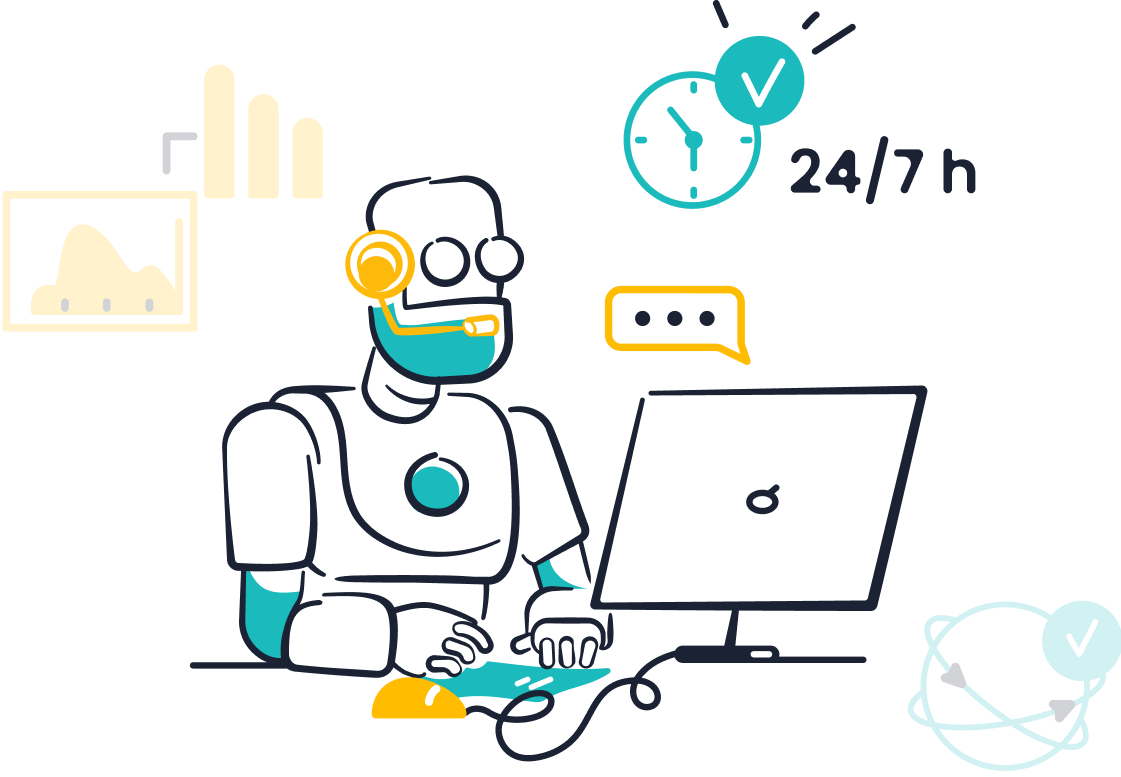
Leveraging Sobot’s Chatbot for 24/7 Support
Sobot’s AI-powered chatbot revolutionizes digital customer service by providing round-the-clock support. This tool ensures that customers receive immediate assistance, regardless of the time or day. Its multilingual capabilities allow businesses to cater to diverse audiences, enhancing accessibility. The chatbot also automates repetitive tasks, enabling human agents to focus on complex issues.
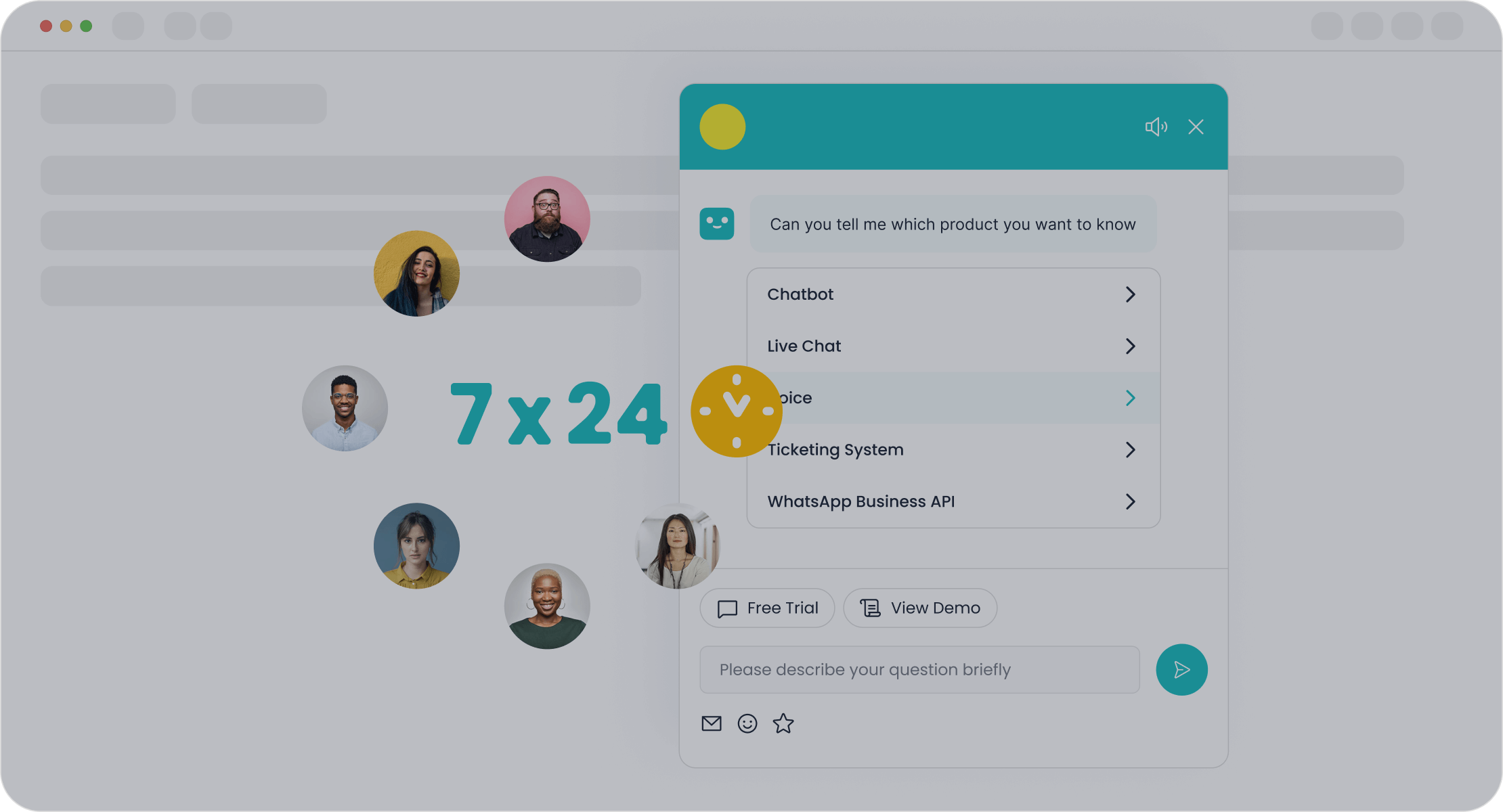
Sobot’s chatbot offers over 300 performance indicators to measure customer satisfaction. Configurable dashboards help businesses visualize engagement trends, while customizable reports provide insights into consumer behavior. These features empower companies to refine their strategies and deliver better service. For example, businesses using Sobot’s chatbot have reported a 70% boost in agent efficiency and up to 50% cost savings. By integrating this tool, you can enhance customer experiences and build loyalty through consistent, high-quality support.
Social Media as a Digital Customer Service Solution
Social media has become a vital channel for digital customer service. Platforms like Facebook, Twitter, and Instagram allow you to connect with brands instantly. Studies show that 70% of customers prefer reaching out via social media for support. This trend highlights the importance of maintaining an active presence on these platforms.
Brands that engage with customers on social media often stand out. Over half of consumers find such brands memorable, which strengthens loyalty. However, managing high volumes of requests can be challenging. Tools like Sobot’s omnichannel solutions simplify this process by unifying social media interactions with other communication channels. This integration ensures faster responses and consistent service quality, even during peak times.
| Evidence | Description |
|---|---|
| 70% of customers | Prefer social media for support, showcasing its popularity. |
| 2023 Index data | Over half of consumers find responsive brands memorable. |
| Challenges in customer care | High request volumes require dedicated strategies. |
| Influence on brand practices | Public interactions push brands to improve service. |
Self-Service Portals and Mobile Apps
Self-service options like portals and mobile apps empower you to resolve issues independently. Research indicates that 73% of customers prefer self-service portals over traditional channels. These tools can address common problems three times faster, improving efficiency and satisfaction.
For instance, Document360 helped a university reduce IT support calls by 30% through a knowledge base. Similarly, the Ministry of Health KPK implemented an electronic queue system, cutting patient wait times significantly. Sobot’s self-service solutions, including its AI chatbot and mobile app integrations, offer similar benefits. These tools provide instant access to FAQs, tutorials, and other resources, enabling you to find answers quickly. By adopting self-service options, businesses can enhance customer satisfaction and foster loyalty.
Best Practices for Effective Digital Customer Service
Implementing Multi-Channel Support Strategies
To deliver effective digital customer service, you must adopt multi-channel support strategies. Customers today interact with brands across various platforms, from social media to live chat. Research shows that 90% of consumers expect a consistent experience across all channels. By unifying these interactions, you can ensure seamless communication and build trust.
Companies that implement multi-channel strategies see a 21% revenue increase compared to those relying on a single channel. For example, Sobot’s omnichannel solutions integrate platforms like WhatsApp, email, and live chat into one system. This approach simplifies communication and ensures your team can respond promptly, even during peak times.
| Statistic | Source |
|---|---|
| 72% of consumers prefer connecting with brands through multiple channels. | MarketingSherpa |
| Companies using three or more channels see a 250% higher engagement rate. | Adobe |
By adopting multi-channel strategies, you can enhance customer engagement and satisfaction while driving business growth.
Personalization Through AI and Customer Data
Personalization has become a cornerstone of effective digital customer service. Customers expect tailored experiences that address their unique needs. AI plays a pivotal role in achieving this by analyzing customer data to deliver relevant recommendations. For instance, Amazon uses AI to suggest products based on browsing history, boosting customer satisfaction and loyalty.
Sobot’s AI solutions excel in personalization. They use AI-driven insights to customize interactions in real time. For example, AI copilots assist agents by generating context-aware responses, ensuring every interaction feels personal. Studies confirm that businesses using AI for personalization see improved customer retention and higher sales.
| Findings | Implications |
|---|---|
| AI enhances customer satisfaction by delivering personalized experiences. | Retailers can build loyalty and drive revenue growth. |
By leveraging AI and customer data, you can create meaningful interactions that foster long-term relationships.
Using Predictive Analytics for Proactive Service
Predictive analytics transforms digital customer service by enabling proactive customer service. This approach uses AI and machine learning to forecast customer behavior and address issues before they arise. For example, predictive analytics can identify potential system slowdowns, allowing you to resolve them proactively.
A Forrester study highlights the value of real-time sentiment analysis and multilingual support, with 56% of decision-makers prioritizing these features. Sobot’s AI solutions incorporate predictive analytics to provide actionable insights. These insights help you anticipate customer needs, ensuring faster resolutions and higher satisfaction.
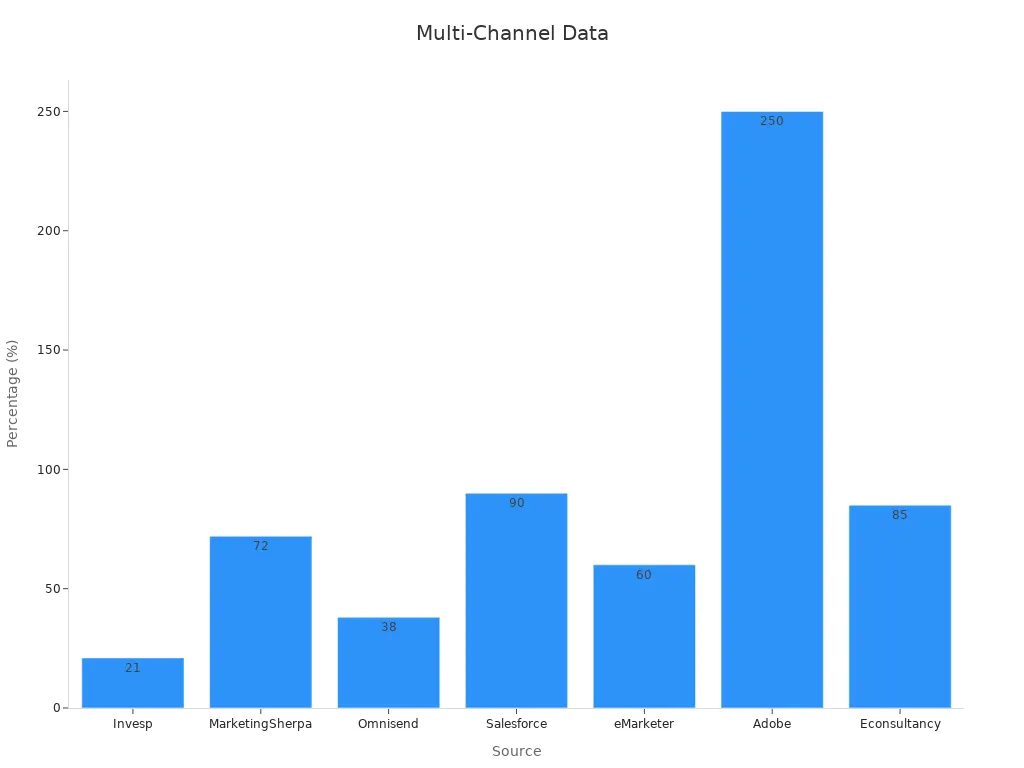
By adopting predictive analytics, you can enhance efficiency and deliver exceptional customer experiences.
Training Teams for Digital Customer Engagement
Training your team for digital customer engagement is essential to deliver exceptional service in today’s fast-paced world. Employees need the right skills and knowledge to handle digital tools, interact effectively, and meet customer expectations. Comprehensive training programs ensure your team stays ahead in this evolving landscape.
Investing in employee development yields significant benefits. Companies that prioritize training see an 11% increase in profitability. Structured programs also improve product adoption rates by 79%. These outcomes highlight the importance of equipping your team with the tools and techniques to succeed in digital customer service.
Effective training focuses on practical skills. Your team should learn to use ai-powered tools like chatbots and predictive analytics. These technologies streamline operations and enhance customer interactions. For example, Sobot’s AI copilots assist agents by generating context-aware responses, enabling faster resolutions. Training ensures your team can leverage these tools to deliver personalized and efficient service.
Time constraints often challenge customer service leaders. Studies show they have only 7% of their time available for deep work like coaching. To address this, you can implement bite-sized training modules or e-learning platforms. These methods allow employees to learn at their own pace while minimizing disruptions to daily operations.
Educational initiatives also strengthen customer loyalty. Over 83% of consumers prefer brands that provide educational content. By training your team to deliver informative and engaging interactions, you can build trust and foster long-term relationships. Companies with structured customer education strategies report an average revenue increase of 7.6%, proving the financial value of training.
Incorporating ai into your training programs ensures your team remains competitive. Equip them with the skills to use advanced tools, analyze data, and anticipate customer needs. This approach not only improves service quality but also drives business growth.
Digital customer service has become a cornerstone of modern business strategies, especially as we approach 2025. It combines convenience, efficiency, and personalization to meet rising customer expectations. Businesses that embrace tools like Sobot’s AI-powered chatbot gain a competitive edge by offering 24/7 multilingual support and automating repetitive tasks. These solutions not only enhance customer satisfaction but also reduce costs and improve operational efficiency.
Companies with strong customer experience strategies achieve 1.5x higher revenue growth and 1.8x greater profitability. For example, IKEA’s digital transformation boosted online sales and engagement, while Ritz-Carlton’s focus on training improved loyalty. By adopting best practices, such as multi-channel support and AI-driven personalization, you can stay ahead in the evolving digital landscape and foster long-term success.
FAQ
What is the main advantage of digital customer service over traditional methods?
Digital customer service offers 24/7 availability, faster response times, and scalability. Unlike traditional methods, it uses tools like chatbots and live chat to handle multiple inquiries simultaneously. This ensures you receive immediate assistance without waiting in long queues.
How does Sobot’s chatbot improve customer service?
Sobot’s chatbot automates repetitive tasks, provides multilingual support, and operates round-the-clock. It boosts agent efficiency by 70% and reduces costs by up to 50%. You can also customize it to fit your business needs, ensuring a seamless customer experience.
Tip: Use Sobot’s chatbot to handle FAQs and free up your team for complex issues.
Can small businesses benefit from digital customer service?
Absolutely! Digital tools like chatbots and self-service portals help small businesses manage customer inquiries efficiently. They reduce operational costs and improve customer satisfaction. Even with limited resources, you can deliver professional, round-the-clock support.
What channels are most effective for digital customer service?
The most effective channels include live chat, social media, and messaging apps like WhatsApp. These platforms provide real-time support and are easy for customers to access. Sobot’s omnichannel solutions integrate these channels, ensuring consistent service across platforms.
How does personalization enhance digital customer service?
Personalization tailors interactions to your preferences, making the experience more engaging. AI tools analyze your data to offer relevant solutions. For example, Sobot’s AI copilots generate context-aware responses, ensuring every interaction feels unique and meaningful.
Note: Personalized service builds trust and increases customer loyalty.
See Also
Transforming Support With Innovative AI Customer Service Agents
Enhancing Efficiency Through AI-Driven Customer Service Solutions
Best Reviewed Cloud Contact Center Services for 2024
The 10 Leading Customer Service Software Options for 2024
Ten Essential Tips for Selecting Social Media Support Software
